Your immune system works 24/7 to protect you. But are you giving it the fuel it needs to succeed?
Many people grab supplements hoping for a quick fix. They ignore powerful, everyday foods that boost immune system. This is a problem. Real food works better than pills. The CDC says millions get sick yearly from preventable illnesses. Poor nutrition plays a big role.
You don’t need expensive products. Nature already provides what your body craves.
In this guide, you’ll discover 12 specific foods backed by science. You’ll learn exactly how they strengthen your immune health. No guesswork. We’ll cut through the noise and give you clear, practical tips you can use today. You’ll see why whole foods beat supplements for natural immunity.
Start with just 2 or 3 foods this week. Small changes make a real difference. Let’s build your body’s defenses—the simple, effective way.
How Food Actually Strengthens Your Immune System

Your immune system is more complex than most people think. It’s made up of white blood cells that patrol your body looking for threats. These cells create antibodies that remember specific germs and fight them off faster next time.
But here’s what most people don’t know: your immune health depends heavily on what you eat.
Certain nutrients act like fuel for your immune system. Vitamin C helps white blood cells work better and protects them from damage. Vitamin A keeps the barriers in your nose and throat strong so germs can’t get through. Vitamin D acts like a signal that tells your immune cells when to turn on and off. Zinc helps your body make new immune cells quickly when you need them.
When you don’t get enough of these nutrients, your natural immunity suffers. A large study found that 45% of Americans don’t get enough vitamin A, 46% lack vitamin C, and 95% are low in vitamin D. That’s a lot of people with weakened defenses.
Your gut plays a huge role too. About 70% of your immune system lives in your digestive tract. The healthy bacteria there talk to your immune cells every day. Research published in Cell showed that people who ate fermented foods for 10 weeks had stronger immune responses and less inflammation.
This is why whole foods beat supplements every time. An orange gives you vitamin C plus fiber that feeds good gut bacteria. A supplement just gives you isolated vitamin C. Your body knows the difference.
Real food provides nutrients in the right combinations. It feeds the bacteria that keep your immune system sharp. And here’s why that matters: when your gut is healthy, your whole immune system works better.
The fix isn’t complicated. Eat colorful fruits and vegetables. Include fermented foods like yogurt. Your immune system will thank you.
🥗 Daily Immune Food Plan
Simple ways to eat immune boosting foods every day
Morning (7-9 AM)
- Greek yogurt with blueberries
- Green tea instead of coffee
- Add ginger to smoothies
- Almonds as snack (23 nuts)
Afternoon (12-2 PM)
- Spinach salad with garlic dressing
- Sweet potato as side dish
- Citrus fruit for dessert
- Turmeric in soups/rice
Evening (6-8 PM)
- Steamed broccoli (3-4 minutes)
- Garlic added to stir-fries
- Shellfish 2-3x per week
- Golden milk before bed
Meal Prep Sunday
Wash berries, chop garlic, steam sweet potatoes. Store in glass containers for easy weekday meals.
Seasonal Eating
Winter: Citrus & ginger. Spring: Leafy greens. Summer: Berries. Fall: Sweet potatoes & turmeric.
Smart Storage
Freeze berries, grate ginger in ice trays, pre-make garlic paste. Keep almonds in airtight containers.
🍹 5-Minute Immune Boosters
💰 Budget-Friendly Swaps
1. Citrus Fruits (Vitamin C Powerhouses)

Your body can’t make vitamin C, so you need to get it from food. One medium orange delivers about 70mg of vitamin C – almost your entire daily needs.
The famous Cochrane review looked at 29 studies involving over 11,000 people. Regular vitamin C intake reduced cold duration by 8% in adults and 14% in children. While it won’t prevent every cold, vitamin C helps your white blood cells work better and protects them from damage.
Here’s the key: eat the whole fruit, not just juice. An orange gives you fiber that feeds good gut bacteria. Orange juice lacks this fiber and packs way more sugar than your body needs.
Your best immune boosting foods include oranges, grapefruits, lemons, and limes. Aim for one citrus fruit daily. The vitamin C content stays highest when fruits are fresh. And here’s why that matters: vitamin C breaks down quickly when exposed to light and air. Cut your fruit right before eating for maximum benefit.
Skip the mega-dose supplements. Your body absorbs vitamin C better from real food.
2. Garlic (Natural Antibiotic Properties)
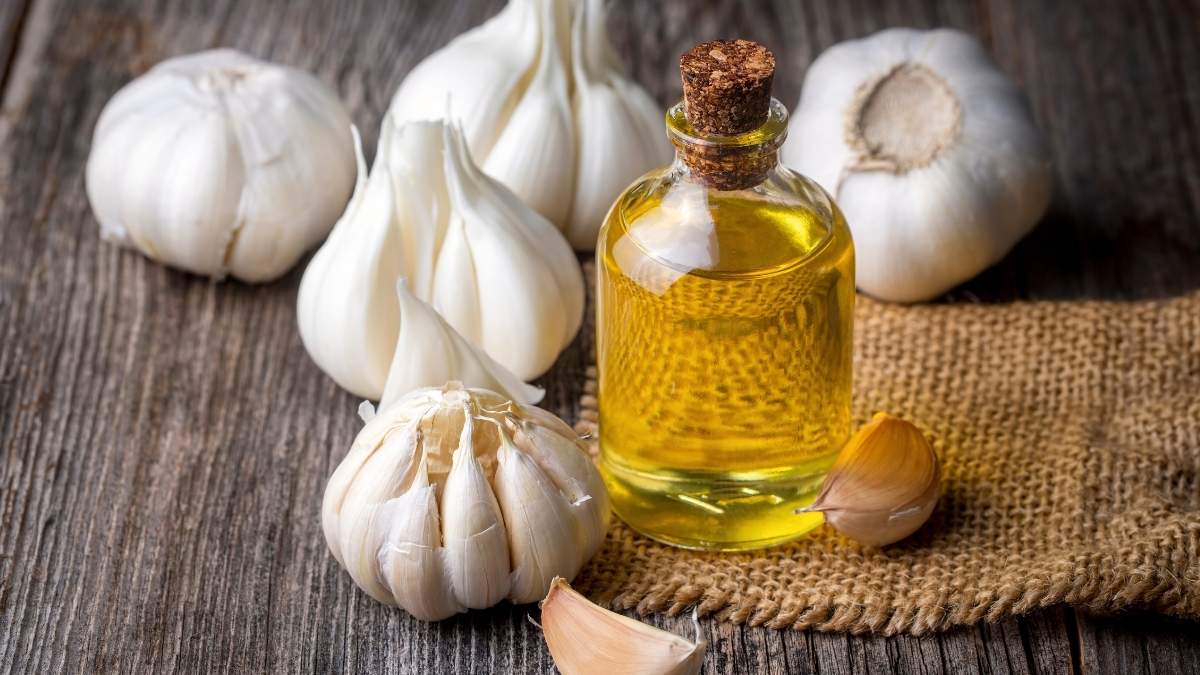
Garlic contains allicin, a sulfur compound that forms when you crush fresh cloves. This compound gives garlic its smell and most of its immune benefits.
A study of 120 healthy adults found that taking 2.56g of aged garlic extract daily for 90 days reduced cold and flu severity. People had fewer symptoms and missed fewer work days. The aged garlic extract worked by boosting natural killer cells and other immune fighters.
Here’s the preparation trick: crush your garlic and wait 10 minutes before cooking. This lets the allicin form properly. Heat destroys some benefits, so add crushed garlic at the end of cooking when possible.
Fresh garlic works best for natural immunity foods. Garlic powder and pre-minced garlic from jars contain much less allicin. One to two fresh cloves daily gives you the immune benefits without overdoing it.
Some people take aged garlic extract supplements. These don’t smell but keep many of the immune benefits. Either way works – choose what you’ll actually use consistently.
3. Ginger (Anti-Inflammatory Champion)

Ginger contains gingerol and shogaol, compounds that fight inflammation and may help your immune system work better. Fresh ginger has the most gingerol, while dried ginger has more shogaol.
Both compounds help reduce the kind of chronic inflammation that can weaken your immune response over time. Research shows that ginger’s anti-inflammatory effects help immune cells function properly by reducing oxidative stress.
Fresh ginger gives you the most benefits. Grate it into tea, smoothies, or stir-fries. Dried ginger works too, but you need less because it’s more concentrated. Ginger supplements exist, but fresh ginger also aids digestion and tastes great.
One thumb-sized piece of fresh ginger daily is plenty. Some people find ginger too spicy at first – start with smaller amounts. You can add honey to ginger tea to make it more pleasant.
These healthy foods for immune system support work best when you eat them regularly, not just when you feel sick. Make ginger part of your routine by adding it to morning tea or cooking.
4. Spinach (Nutrient Dense Leafy Green)
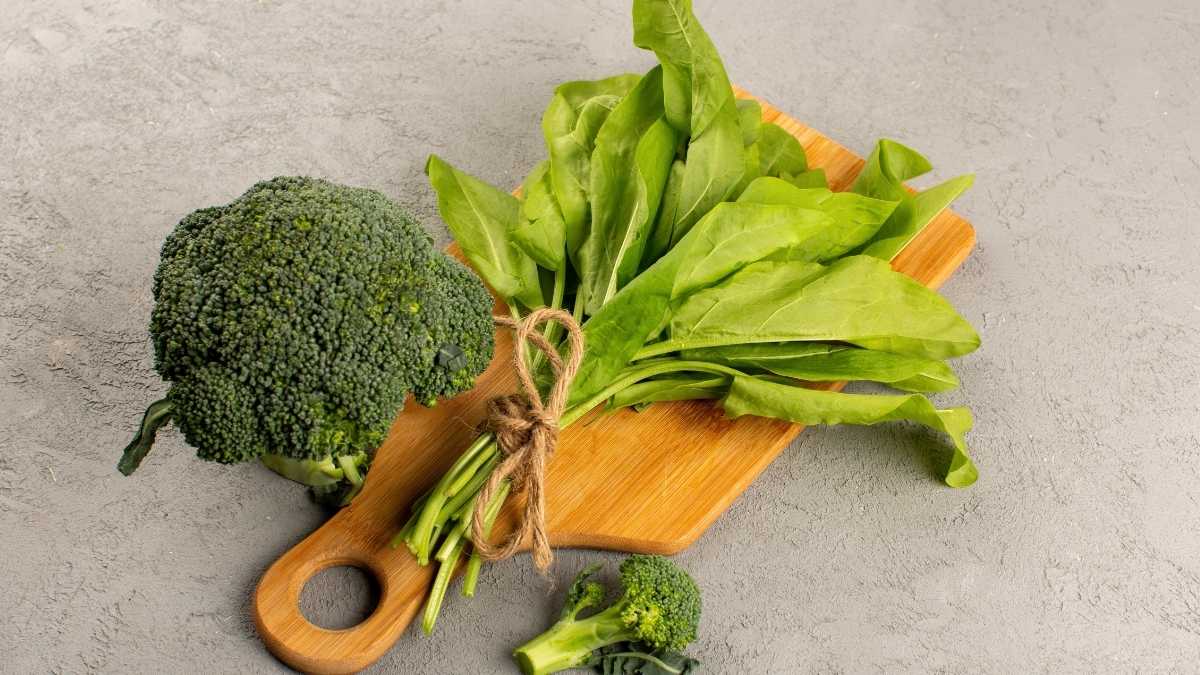
Spinach packs vitamin C, beta carotene, and folate – three nutrients your immune system needs to work right. Beta carotene turns into vitamin A in your body, which keeps the barriers in your nose and throat strong.
One cup of raw spinach gives you about 15% of your daily vitamin C needs. But here’s the interesting part: light cooking actually makes some nutrients more available. Steam spinach briefly to break down the cell walls while keeping most vitamins intact.
Folate helps your body make new immune cells. When you don’t get enough folate, your immune system can’t respond quickly to threats. Spinach provides about 15% of daily folate needs per cup.
Aim for 2-3 cups of leafy greens daily. Spinach mixes well in smoothies where you barely taste it. You can also add it to soups, omelets, or pasta dishes.
These foods that boost immune system work because they provide multiple nutrients together. Baby spinach tends to be milder than mature leaves. Either works – choose what you’ll actually eat regularly.
5. Yogurt (Probiotic Powerhouse)
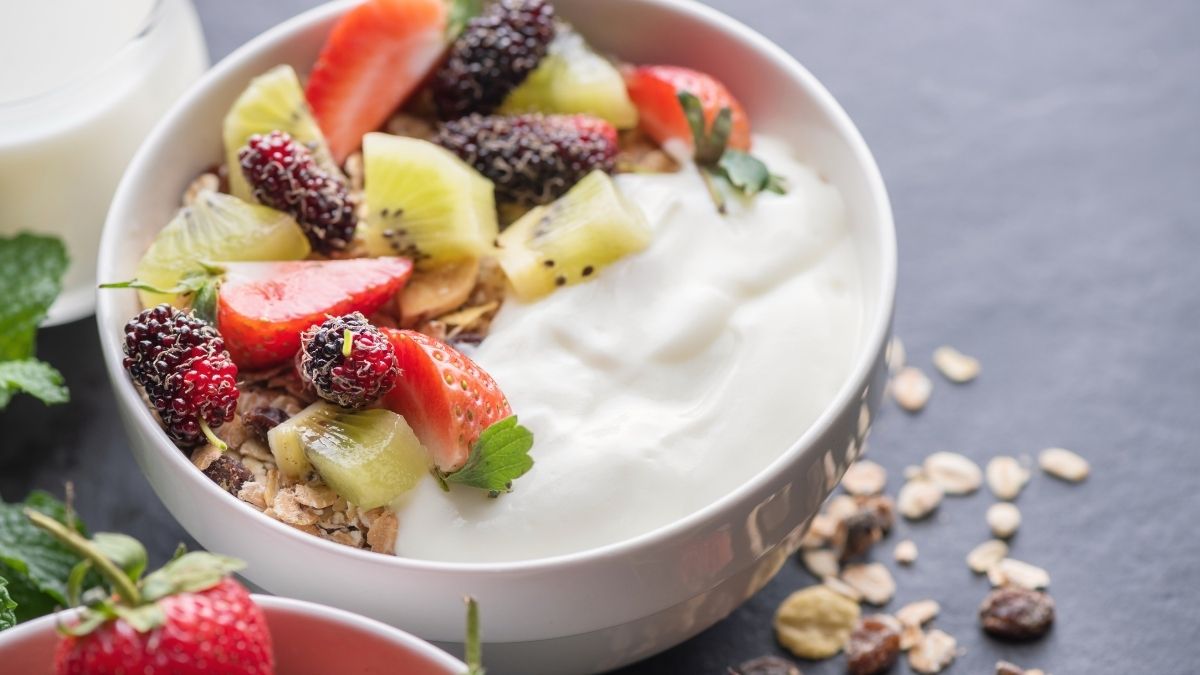
Yogurt contains live bacteria cultures that support your gut health. Since about 70% of your immune system lives in your digestive tract, healthy gut bacteria directly affects your immunity.
Studies show that yogurt with live cultures can increase CD69 expression on T cells, boosting cellular immune function. The effect lasted even after people stopped eating yogurt. Look for “live and active cultures” on the label to make sure you’re getting real probiotics.
The key strains are Lactobacillus bulgaricus and Streptococcus thermophilus. Many brands add other beneficial bacteria like Lactobacillus acidophilus and Bifidobacterium.
Choose plain yogurt and add your own fruit. Flavored yogurts often contain too much added sugar, which can actually suppress immune function. Greek yogurt has more protein but similar probiotic benefits.
One cup daily provides good probiotic support. These immune boosting foods work by keeping the bacteria in your gut balanced. When good bacteria outnumber harmful ones, your immune system functions better and inflammation stays in check.
6. Almonds (Vitamin E Rich)
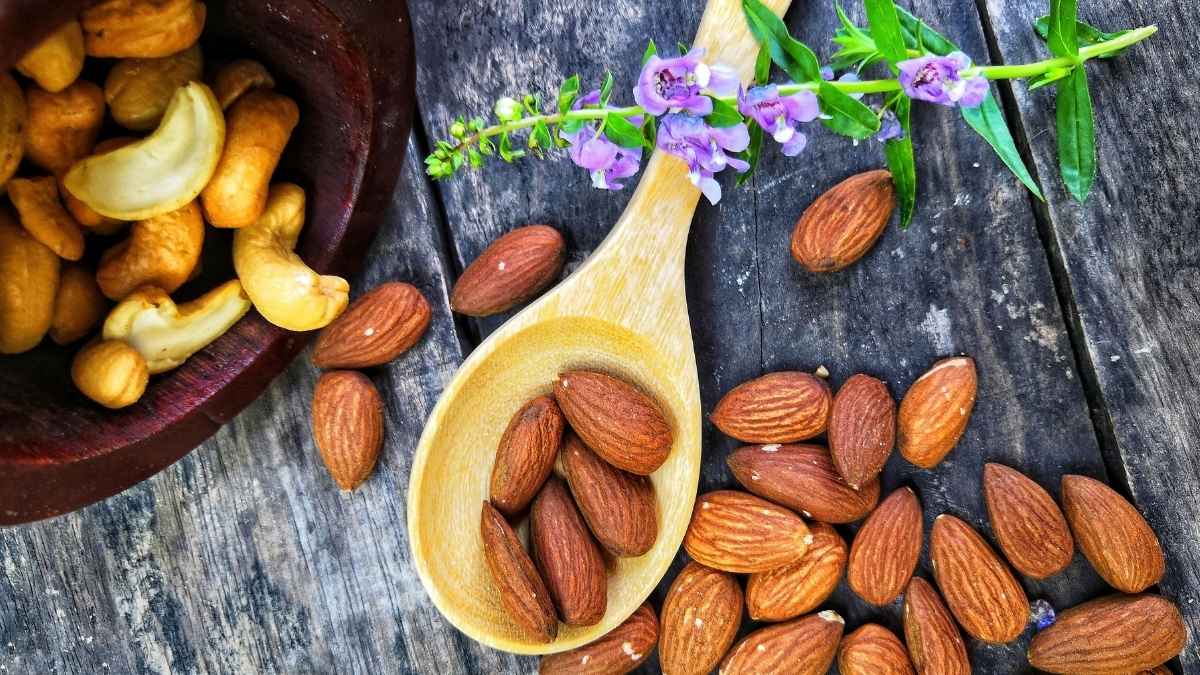
Almonds provide vitamin E, a fat-soluble vitamin that helps your immune system function properly. Unlike vitamin C, vitamin E works best with a little fat – which almonds naturally provide.
Research shows that 84% of Americans don’t get enough vitamin E, which is essential for T-cell function. T-cells are white blood cells that remember specific threats and respond faster when they encounter them again.
A quarter cup of almonds gives you about 50% of your daily vitamin E needs. That’s roughly 23 almonds. Vitamin E protects cell membranes from damage and helps immune cells communicate properly.
The fat in almonds helps your body absorb vitamin E. This is why almonds work better than vitamin E supplements taken alone. Raw or dry-roasted almonds both work well.
These natural immunity foods taste great as snacks or chopped over salads. You can also make almond butter or add sliced almonds to oatmeal. Just watch portions – nuts are calorie-dense. A small handful daily gives you the benefits without overdoing calories.
7. Turmeric (Golden Anti-Inflammatory)
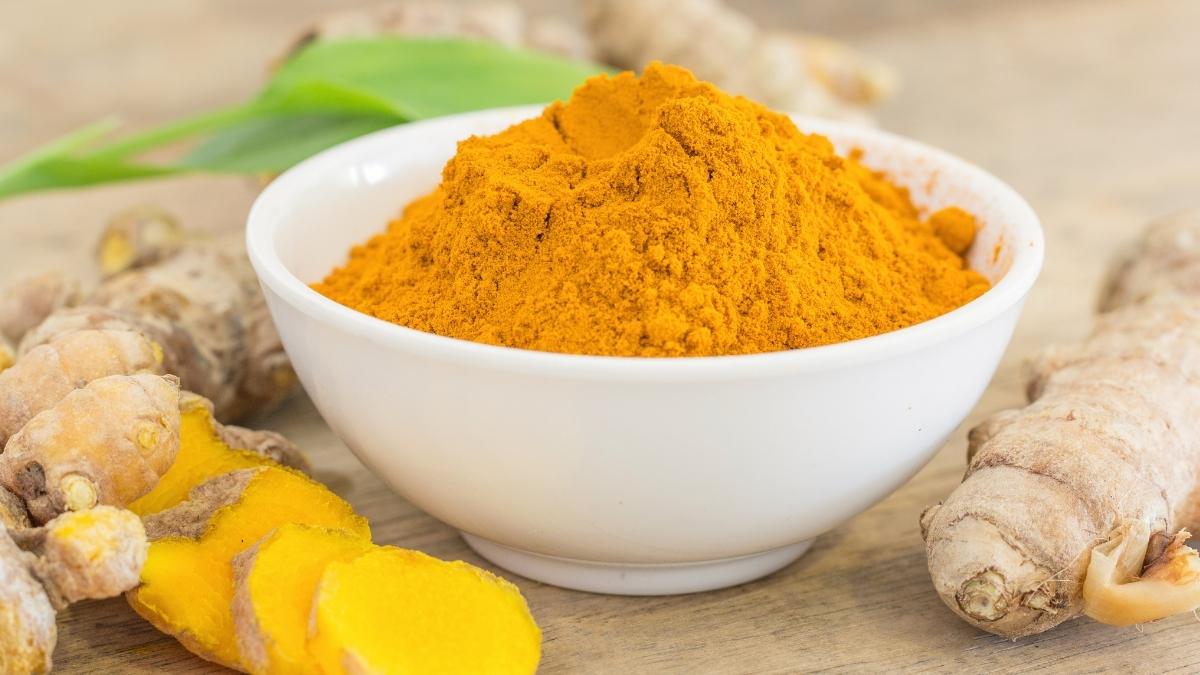
Turmeric contains curcumin, a bright yellow compound with powerful anti-inflammatory effects. Chronic inflammation weakens your immune system over time, so reducing it helps your natural defenses work better.
Here’s the absorption trick: combine turmeric with black pepper. The piperine in black pepper increases curcumin absorption by up to 2000%. Most curry powders already include both spices.
Studies show that curcumin helps regulate immune responses and reduces inflammatory markers that can interfere with proper immune function. Fresh turmeric root works well, but the powder is more convenient for daily use.
Add a teaspoon of turmeric powder to soups, rice, or smoothies. The flavor is earthy and mild. Some people take curcumin supplements, but food sources provide other beneficial compounds too.
These healthy foods for immune system work best when eaten regularly. Start with small amounts if you’re not used to the taste. Golden milk (turmeric mixed with warm milk and honey) is a popular way to get daily turmeric.
8. Green Tea (Antioxidant Rich)
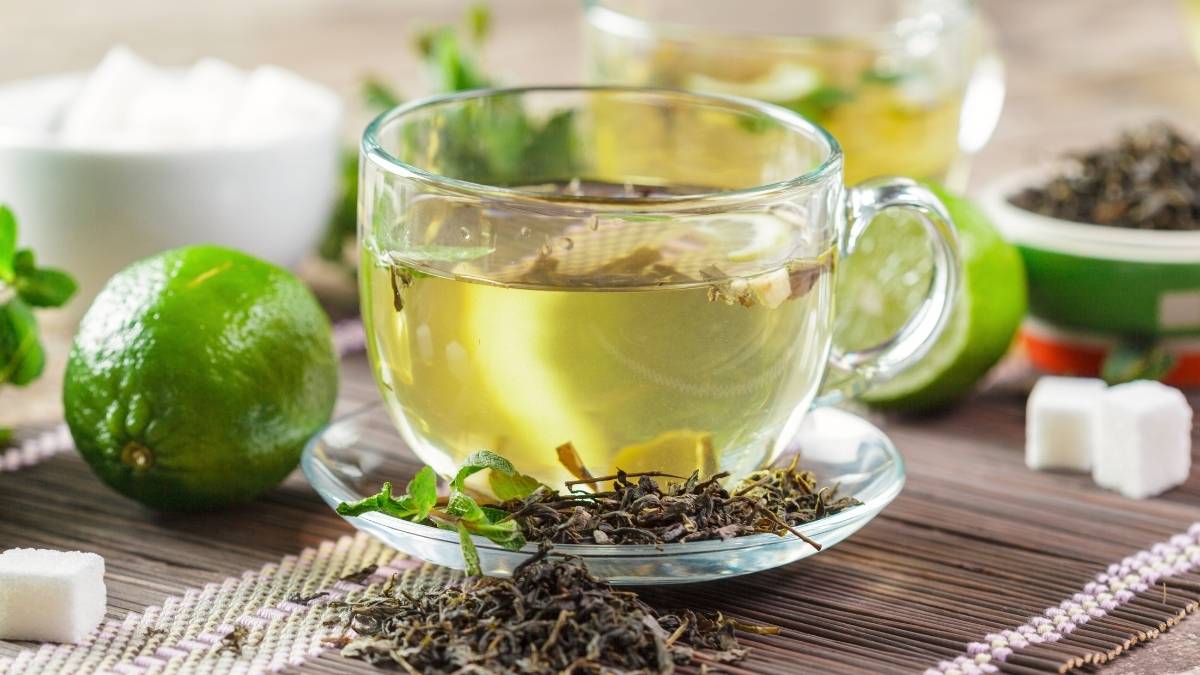
Green tea contains EGCG (epigallocatechin gallate), a powerful antioxidant that supports immune function. EGCG helps protect your cells from damage and may enhance the activity of regulatory T-cells.
Brewing matters for maximum antioxidants. Use water heated to 160-180°F, not boiling. Steep for 3-5 minutes. Boiling water destroys some beneficial compounds and makes the tea bitter.
Research indicates that green tea polyphenols can help modulate immune responses and reduce oxidative stress that interferes with proper immune function. Regular green tea drinkers often have stronger immune responses.
Two to three cups daily provides good antioxidant support. Green tea has some caffeine but less than coffee. Drink it between meals for best absorption – the tannins can interfere with iron absorption from food.
These foods that boost immune system work through multiple pathways. Green tea also supports heart health and may help with weight management. Choose quality tea leaves over tea bags when possible. The leaves contain more antioxidants.
9. Sweet Potatoes (Beta Carotene Source)
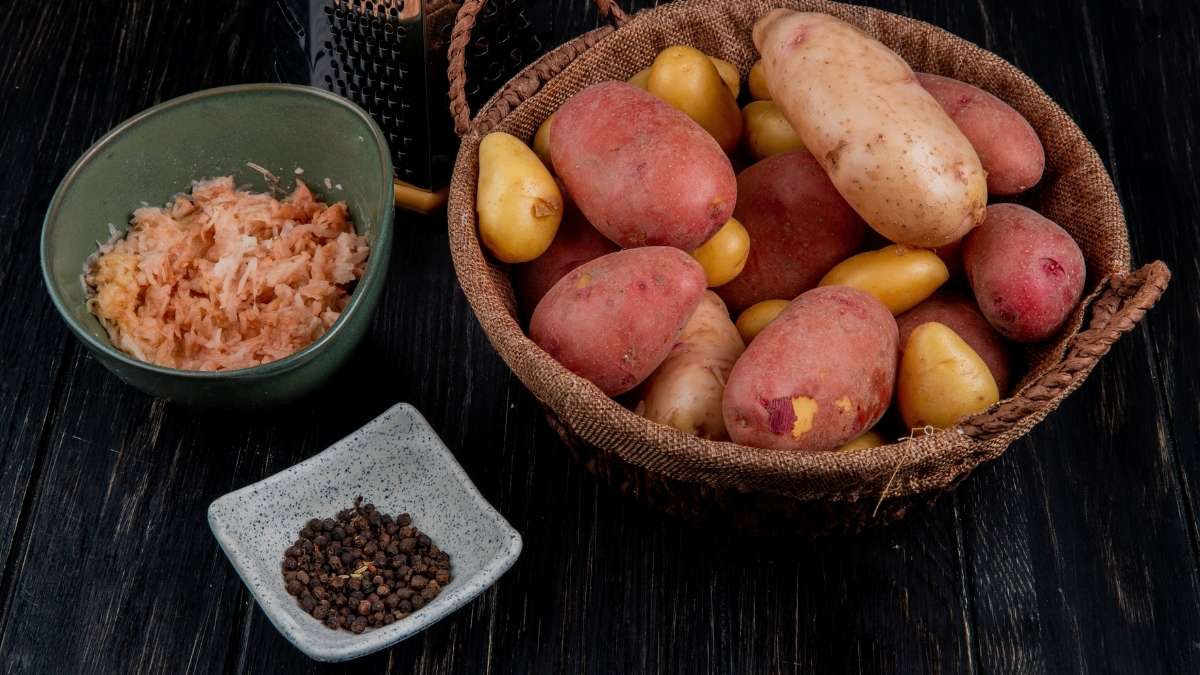
Sweet potatoes are packed with beta carotene, which your body converts to vitamin A. Vitamin A keeps the linings of your respiratory and digestive tracts healthy – your first defense against germs.
One medium baked sweet potato provides over 100% of your daily vitamin A needs. The orange color tells you it’s loaded with beta carotene. Your skin and mucous membranes need vitamin A to stay strong and keep pathogens out.
Bake sweet potatoes with the skin on for maximum nutrients. The skin contains fiber that feeds beneficial gut bacteria. Roasting caramelizes the natural sugars and makes them taste even better.
Beta carotene is fat-soluble, so eat sweet potatoes with a little healthy fat for best absorption. A drizzle of olive oil or a few nuts works perfectly.
These immune boosting foods taste naturally sweet and satisfying. You can also add them to soups, mash them like regular potatoes, or cut them into fries. Purple sweet potatoes contain different antioxidants but work similarly for immune support.
10. Broccoli (Vitamin Superstar)
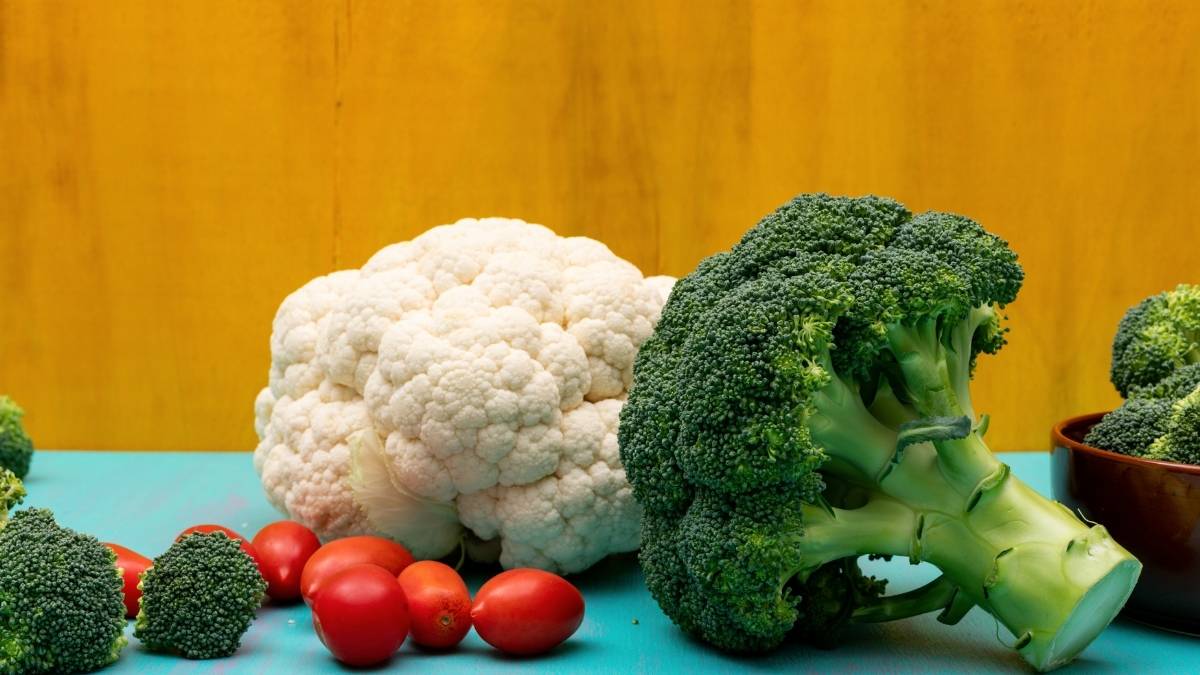
Broccoli contains vitamins A, C, and E plus fiber and sulforaphane, a compound that may boost your body’s antioxidant defenses. It’s like a multivitamin in vegetable form.
One cup of cooked broccoli provides over 100% of your daily vitamin C needs plus good amounts of vitamin A and folate. The sulforaphane forms when you chop or chew raw broccoli, but light steaming preserves it too.
Steam broccoli for 3-4 minutes until bright green and slightly tender. Overcooking destroys vitamin C and makes it mushy. Raw broccoli works great in salads or with hummus.
The fiber in broccoli feeds beneficial gut bacteria, supporting your immune system from the inside. Research shows that adequate fiber intake helps maintain healthy gut bacteria populations that communicate with immune cells.
These natural immunity foods work best when you eat the whole vegetable, not just supplements. Broccoli sprouts contain even more sulforaphane than mature broccoli. Add them to sandwiches or salads for extra immune support.
11. Shellfish (Zinc Powerhouse)
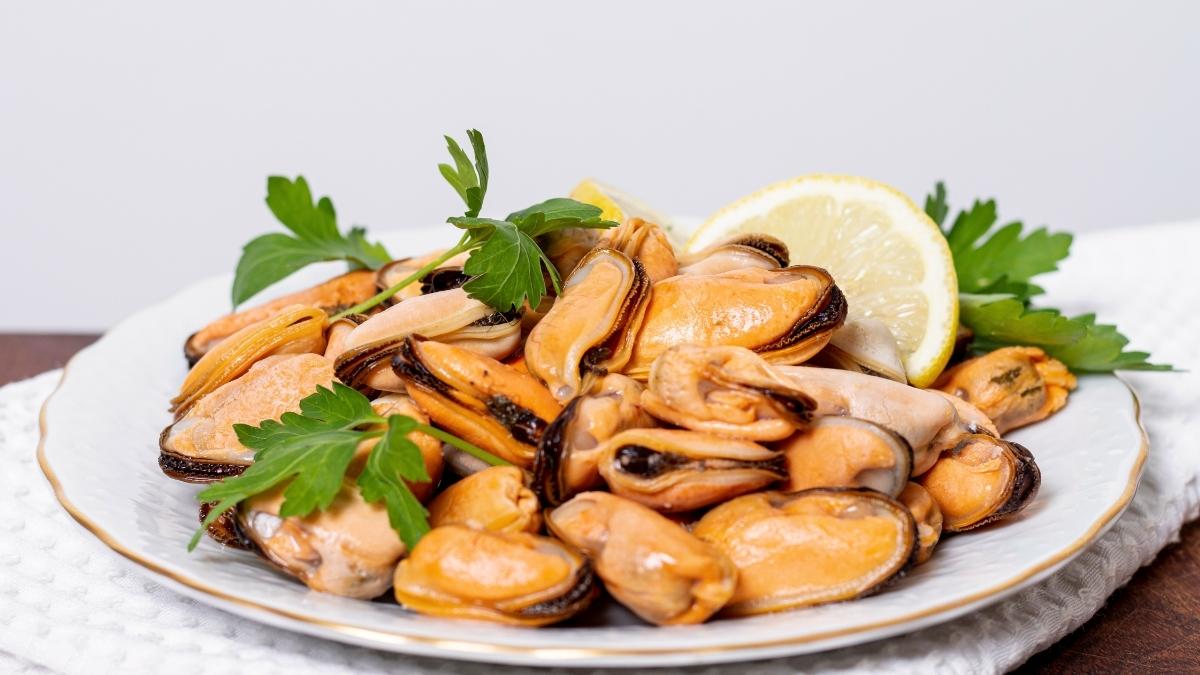
Shellfish like oysters, crab, and lobster contain more zinc than almost any other food. Zinc helps your immune cells function properly and plays a role in wound healing.
Studies show that 15% of Americans don’t get enough zinc, which is essential for immune cell development and communication. You need 8-11mg daily, and six medium oysters provide about 32mg.
Zinc deficiency makes you more susceptible to infections and slows recovery time. But too much zinc can actually suppress immune function, so don’t overdo it. A few servings of shellfish per week provides plenty.
Crab, lobster, and mussels also provide good zinc amounts. If you don’t eat shellfish, pumpkin seeds, beef, and beans contain zinc too, though not as much.
These healthy foods for immune system support taste great and provide high-quality protein. Shellfish also contain selenium and omega-3 fatty acids that support overall health. Choose fresh or frozen over canned when possible for best nutrition.
12. Blueberries (Antioxidant Champions)
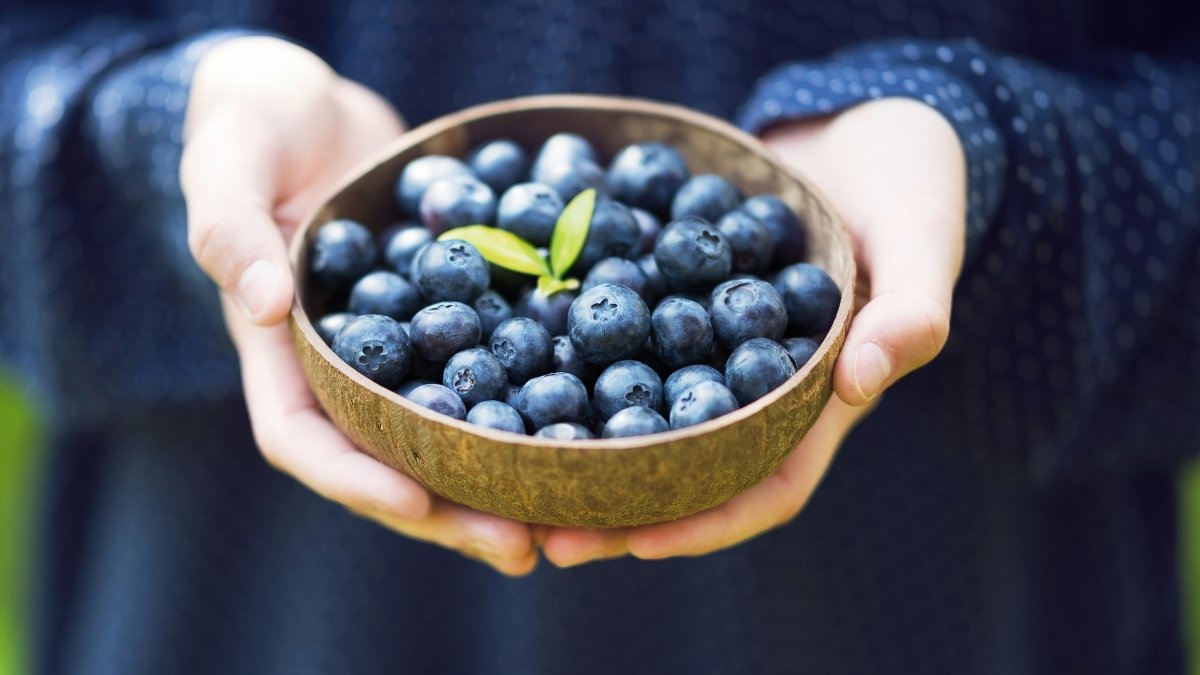
Blueberries contain anthocyanins, the compounds that give them their deep blue color. These antioxidants help protect your immune cells from damage and may enhance their function.
Research on flavonoids found in berries shows they can help regulate immune responses and reduce inflammation that interferes with proper immune function. The antioxidants in blueberries work together with vitamin C and other nutrients.
Half a cup of blueberries daily provides significant antioxidant support. Fresh berries contain the most nutrients, but frozen berries work well too. Avoid berries with added sugar – they’re sweet enough naturally.
Blueberries are easy to add to yogurt, oatmeal, or smoothies. You can also eat them plain as a snack. Wild blueberries tend to have even more antioxidants than cultivated ones.
These foods that boost immune system taste great and provide fiber for gut health. Other dark berries like blackberries and elderberries offer similar benefits. The key is eating berries regularly, not just occasionally. Make them part of your daily routine for consistent immune support.
🛡️ Lifestyle Immunity Boosters
Beyond food: Essential habits for natural immunity
- Same bedtime every night
- Cool, dark room (65-68°F)
- No screens 1 hour before bed
- Morning sunlight exposure
- Brisk walking 30 min/day
- Swimming or cycling
- Yoga or stretching
- Avoid overtraining
- 5-10 minutes daily meditation
- Deep breathing exercises
- Connect with friends/family
- Practice gratitude
- Morning walk outside
- Open windows for fresh air
- Garden or nature time
- Forest bathing/hiking
💧 Daily Hydration Goal
Add more if exercising or in hot weather. Proper hydration helps immune cells travel through your bloodstream.
⚠️ When to See a Healthcare Provider
Conclusion:
You just learned about 12 powerful foods that boost immune system: citrus fruits, red peppers, broccoli, garlic, ginger, spinach, yogurt, almonds, sunflower seeds, turmeric, green tea, and papaya.
Eating these whole foods is much better than taking supplements. Real food gives your body everything it needs together, the way nature intended. Supplements can’t match that.
Don’t try to eat all 12 foods at once. That’s too hard. Start small this week. Pick just 2 or 3 foods from the list. Add them to your meals. Maybe have yogurt with breakfast, snack on almonds, or add spinach to a dinner. Small steps make big changes easier.


